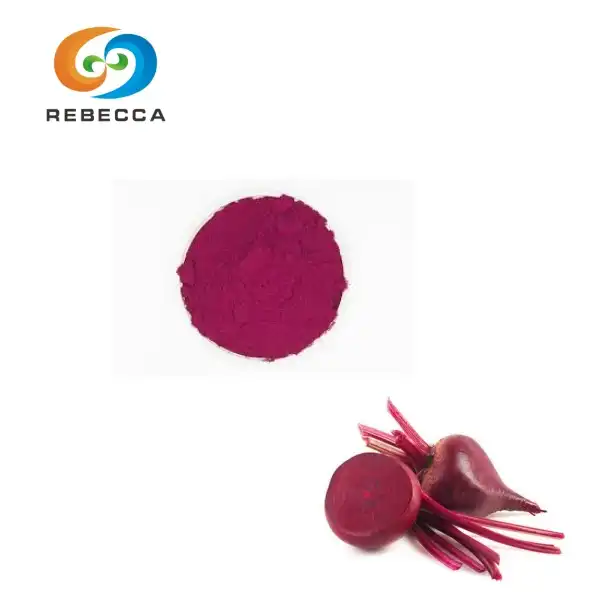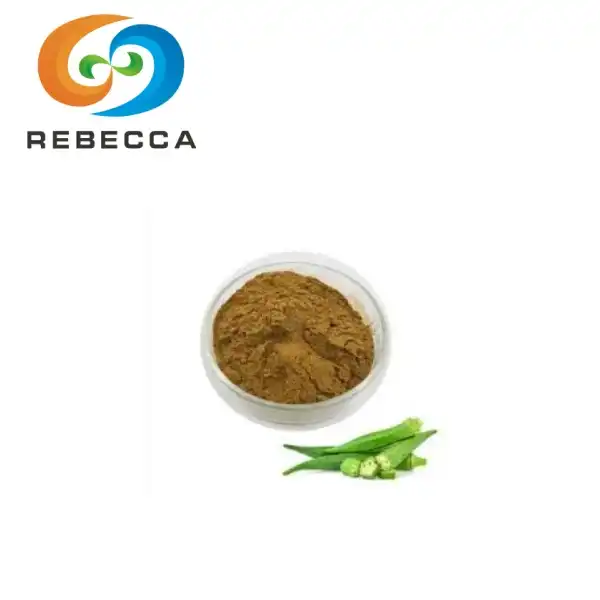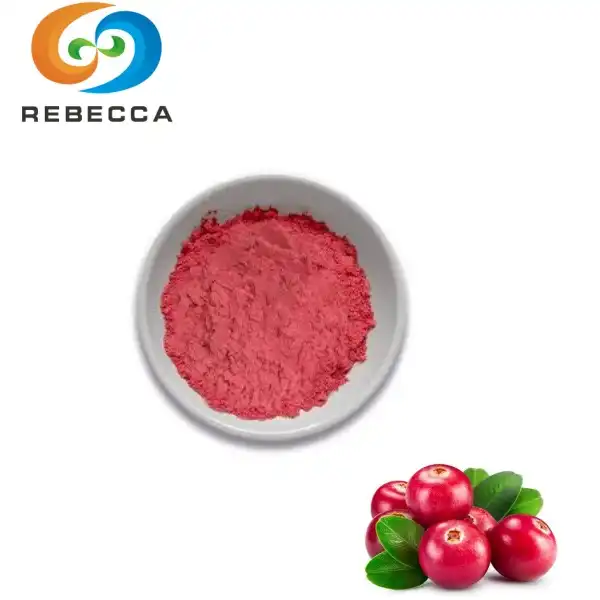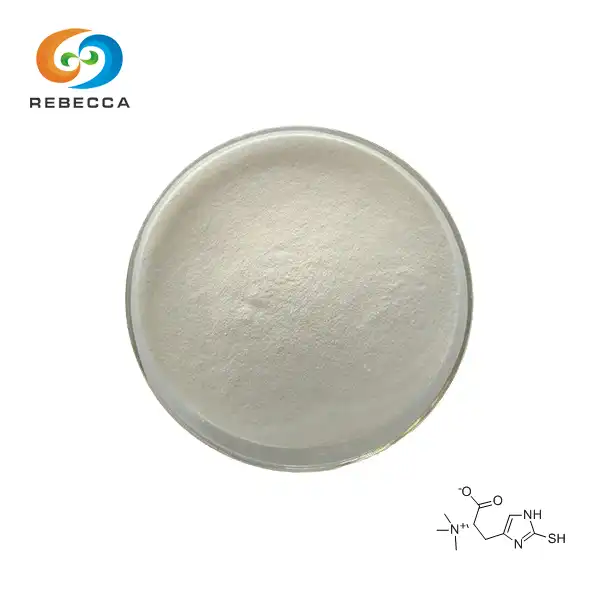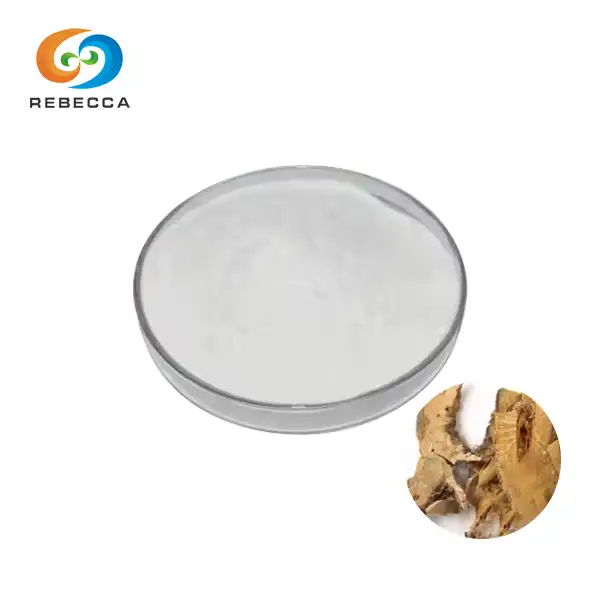Why Alpha Arbutin Works for Sensitive Skin Types?
Alpha arbutin, also known as 4-hydroxyphenyl-α-D-pyranoglucoside, is a naturally derived compound that offers several advantages for sensitive skin types:
Gentle Skin-Lightening Properties
Alpha arbutin offers a gentle approach to skin lightening by targeting the enzyme tyrosinase, which plays a key role in melanin production. Unlike harsh bleaching agents that may lead to irritation, alpha arbutin gradually lightens dark spots and evens out skin tone over time. This slower process minimizes the risk of side effects, making it an ideal option for those with sensitive skin. Its ability to brighten without harshness ensures that even delicate skin can enjoy the benefits of a more luminous complexion.

Hydration Benefits
Alpha arbutin powder 99% is water-soluble, allowing it to integrate seamlessly into various formulations that promote skin hydration. Sensitive skin types are often prone to dehydration, leading to tightness, flakiness, and redness. When included in skincare products, alpha arbutin can help replenish the skin’s moisture barrier, providing lasting hydration without clogging pores or causing irritation. This hydrating effect is especially important for maintaining the comfort and health of sensitive skin, keeping it smooth and nourished throughout the day.

Antioxidant Protection
As a potent antioxidant, alpha arbutin helps protect sensitive skin from the harmful effects of free radicals, which are generated by environmental stressors like pollution, UV exposure, and smoke. These free radicals can accelerate aging and cause damage to skin cells, leading to premature signs of aging. By neutralizing these free radicals, alpha arbutin enhances the skin's natural defenses, reducing the risk of oxidative stress. This protection is essential for maintaining youthful, healthy skin, particularly for those with skin that is easily irritated or damaged by external factors.

Non-Irritating Nature
One of the key reasons why alpha arbutin is favored for sensitive skin is its non-irritating nature. Unlike other skin lightening agents, such as hydroquinone, alpha arbutin’s molecular structure is less likely to provoke redness, itching, or burning. This makes it an excellent option for individuals with conditions like rosacea or eczema, who need to avoid harsh chemicals. Alpha arbutin works gently on the skin, offering a safe, effective solution for those seeking to brighten and even out their complexion without the risk of irritation or discomfort.
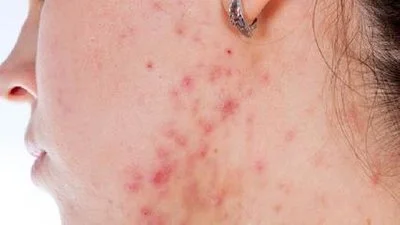
Formulating Serums with Alpha Arbutin Powder
When creating skincare formulations with alpha arbutin powder for sensitive skin, several factors need to be considered:
Optimal Concentration
When formulating serums with alpha arbutin powder for sensitive skin, it's essential to start with a low concentration, usually around 1-2%. This allows the skin to gradually adapt to the ingredient without overwhelming it. Starting at a lower concentration minimizes the risk of irritation while still delivering noticeable brightening effects over time. As the skin becomes accustomed to alpha arbutin, the concentration can be cautiously increased to enhance its efficacy. This gradual approach helps ensure that sensitive skin receives the maximum benefit with minimal risk of adverse reactions.
pH Considerations
The stability and effectiveness of alpha arbutin powder are highly dependent on the pH of the final formulation. It is most stable and potent in a pH range of 5.0 to 7.0. Formulating within this range helps preserve the integrity of alpha arbutin and ensures it remains active on the skin. If the pH is too acidic or too alkaline, alpha arbutin may degrade, losing its brightening and skin-enhancing properties. Careful pH adjustment during formulation is essential to optimize results and prevent irritation, particularly for sensitive skin types.
Complementary Ingredients
To boost the effectiveness of alpha arbutin in serums for sensitive skin, it's beneficial to pair it with calming and soothing ingredients. Niacinamide, panthenol, and chamomile extract are excellent choices, as they help reduce inflammation and redness, which are common concerns for sensitive skin. These complementary ingredients not only support the brightening effects of alpha arbutin but also promote skin hydration and barrier repair, offering an extra layer of comfort. By combining alpha arbutin with these soothing agents, you can create a balanced formula that works gently yet effectively.
Texture and Consistency
For sensitive skin formulations, the texture and consistency of the serum play a crucial role in ensuring comfort and effectiveness. Lightweight, non-comedogenic textures, such as water-based serums or gels, are ideal for delivering alpha arbutin without clogging pores or causing irritation. These formulations provide hydration and allow for quick absorption, which is particularly beneficial for sensitive skin that may react to heavy creams or oils. A smooth, fast-absorbing serum ensures that the active ingredients are delivered effectively while maintaining the delicate skin's comfort and balance.

Alpha Arbutin vs Other Skin Brightening Agents
When comparing alpha arbutin to other skin-brightening ingredients, several factors make it stand out for sensitive skin formulations:
Alpha Arbutin vs Hydroquinone
Hydroquinone is widely recognized for its powerful skin-lightening effects, often used to treat hyperpigmentation and melasma. However, its potential for causing irritation, dryness, and even ochronosis with long-term use has raised concerns—leading to restrictions or bans in several countries. Alpha arbutin offers a safer, more stable alternative, delivering similar skin-brightening results without the harsh side effects. For those with sensitive skin, alpha arbutin is a preferred option, providing effective pigment reduction while minimizing the risk of inflammation or skin barrier disruption.
Alpha Arbutin vs Kojic Acid
Kojic acid is commonly used in skincare for its ability to lighten dark spots and inhibit melanin production. Despite its effectiveness, it often causes sensitivity, redness, or allergic reactions, particularly in individuals with delicate or reactive skin. In contrast, alpha arbutin provides a more balanced approach—offering comparable brightening benefits with a much gentler profile. Its low potential for irritation makes it ideal for sensitive skin types, allowing users to achieve a more even complexion without compromising skin comfort or triggering flare-ups.
Alpha Arbutin vs Vitamin C
Vitamin C is praised for its dual role as an antioxidant and skin-brightening agent, helping to reduce pigmentation and promote collagen synthesis. However, it is notoriously unstable and can degrade quickly when exposed to light, air, or heat. Additionally, higher concentrations of vitamin C may cause tingling or stinging, which can be problematic for sensitive skin. Alpha arbutin powder 99%, being more stable and gentle, delivers similar tone-evening results without the risk of oxidative degradation or discomfort, making it a more reliable choice for reactive skin types.
Synergistic Effects
Alpha arbutin does not need to work alone—it pairs exceptionally well with other gentle ingredients to boost overall brightening effects. When combined with compounds like niacinamide or licorice root extract, it can deliver enhanced results while maintaining a skin-friendly profile. This synergistic approach allows formulators to design targeted treatments that address multiple skin concerns simultaneously. For sensitive skin users, combining alpha arbutin with soothing agents ensures effective pigmentation control without increasing the likelihood of irritation, offering a powerful yet gentle solution for a brighter, healthier complexion.
Conclusion
Alpha arbutin powder is indeed suitable for sensitive skin formulations when used appropriately. Its gentle yet effective skin-brightening properties, coupled with its hydrating and antioxidant benefits, make it an excellent choice for those with delicate complexions seeking a more even skin tone. By carefully considering concentration, pH, and complementary ingredients, formulators can create safe and efficacious products that cater to the unique needs of sensitive skin. For more information on incorporating alpha arbutin powder into your skincare formulations, please contact us at information@sxrebecca.com. Our team of experts is ready to assist you in creating innovative and gentle skincare solutions for sensitive skin types.
_1730691017423.webp)













